The catchment stewardship approach in practice
Lessons from the Natural Resources Stewardship Programme
NatuReS enables private-public-civil society partnerships to sustainably manage the natural resources they need for improved livelihoods and continued economic development. It follows a stewardship approach based on participatory governance, putting emphasis on the commitment of stakeholders from the public, private sector, and civil society in each partnership.
During the Uganda Water and Environment Week 2022, a side event entitled ‘The catchment stewardship approach in practice – Lessons from the Natural Resources Stewardship Programme’ took place. The objective of the event was to showcase how the catchment stewardship approach is successful in addressing natural resources risks across Uganda, Tanzania, Zambia, Ethiopia, and South Africa. To find out more about the catchment stewardship approach have a look at the factsheet.
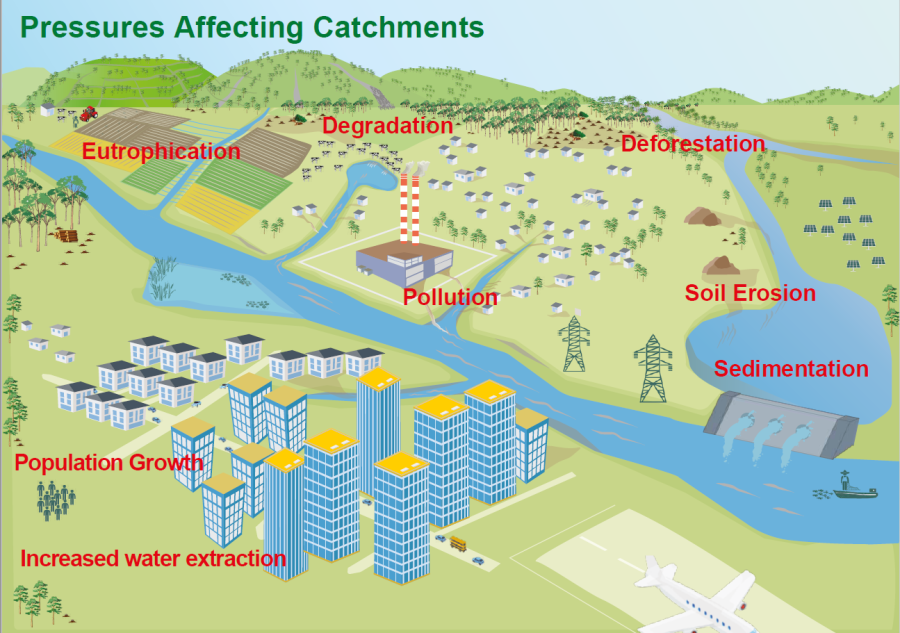
Opening the event
In his opening remarks, Dr. Callist Tindimugaya, the Commissioner for Water Resources Planning and Regulations at the Ugandan Ministry of Water and Environment, highlighted the catchment stewardship approach’s high relevance within the conference’s theme of “Water and environment for peace and socio-economic transformation of Uganda”. He added that the Ministry continues to support stewardship partnerships across Uganda, working towards an economic growth that is environmentally sustainable and socially equitable.
In her opening remarks, Ms. Sarah Beerhalter, the Head of the NatuReS programme, highlighted how the Uganda Water and Environment Week is growing into a flagship conference for natural resources discourse not only in Uganda, but at the regional level, and that the event is a good opportunity for partners from the five countries to come together to share and learn from one another.
Setting the scene
Mr. James Njeru, Country Coordinator for GIZ NatuReS in Ethiopia, gave an overview about the programme and the Natural Resources Risk and Action Framework. This was coupled with a documentary from Ethiopia on how the catchment stewardship approach has been implemented in the Hawassa catchment in Ethiopia.
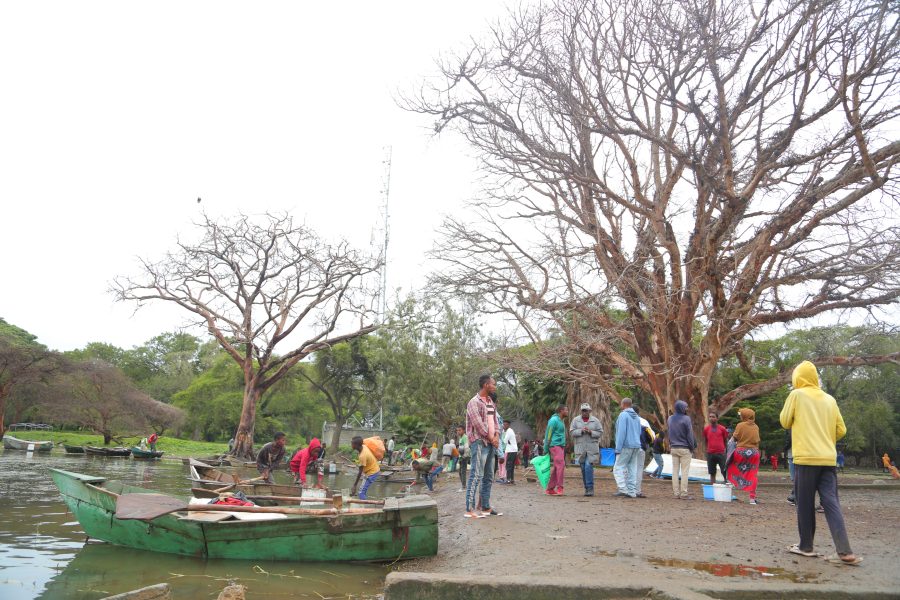
This was followed by a keynote speech from Dr. Hans C. Komakech, the Director of WISE – Futures African Centre of Excellence and a Senior Lecturer at the Nelson Mandela African Institution for Science and Technology in Arusha, Tanzania. He gave a keynote speech focusing on the definition and principles of stewardship, drawing on examples from the region. Particularly, Dr Komakech highlighted that the stewardship concept has evolved into an increased understanding of the relationship between human activities and ecosystems and the resulting interdependencies, the importance of managing complex social-ecological systems, and the necessity of building resilience in the face of change.
Panel discussion between partners from private, public sector and civil society
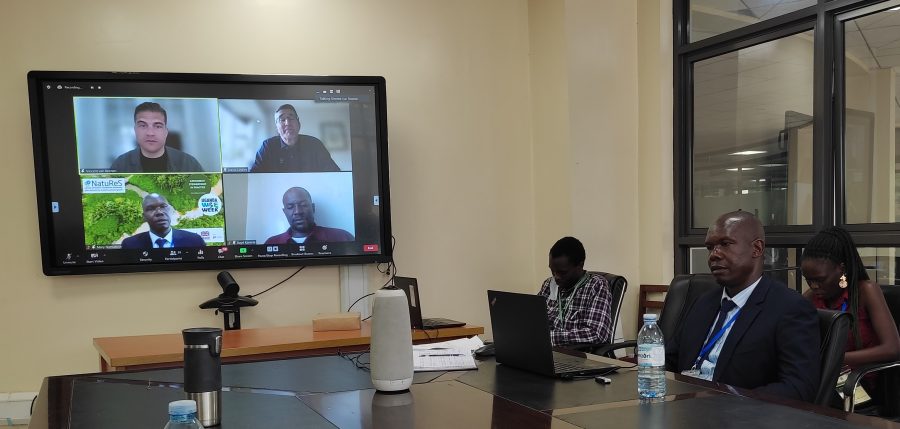
During a panel discussion with representatives from the private, public sectors and civil society, partners shared experiences and lessons from implementing the catchment stewardship approach and drawing conclusions for the future.
Mr. Vincent van Reenen, Corporate Responsibility Advisor East Africa based inEthiopia for PVH Corp., a multi-national clothing company, highlighted the importance of the catchment stewardship approach from a private sector perspective. Through the Protecting Lake Hawassa Partnership, the company was able to connect and exchange with the communities neighboring their production site, as well as to better understand current and future risks in the catchment, representing the basis for their business operations.
Boyd Kanene, Health, Safety, Security and Environment Officer at Olam, one of the biggest coffee producers in Zambia, gave insights on how the Chambeshi Water Security Partnership helped them solve conflicts with local communities, enabled their internal learning on increased environmental compliance, and to continue their conservation efforts in the catchment area, protecting the natural resources while safeguarding livelihood opportunities of local communities.
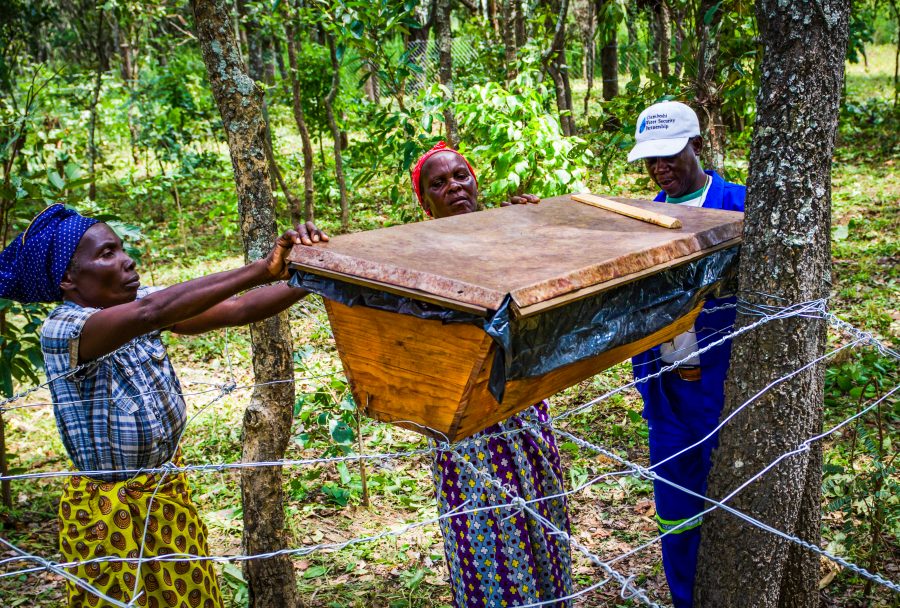
In his remarks about catchment stewardship, drawing on the example of the uMhlathuze Water Stewardship Partnership, Mr. David Lindley from WWF South Africa highlighted the importance of time for multi-stakeholder partnerships to be successful. Partnerships, built on trust which has to slowly but steadily grow between partners, provide a platform for partners to co-create solutions for joint risks in their catchments.
Mr. Richard Musota, Principal Water Officer at the Ugandan Ministry of Water and Environment and Team Leader of the Upper Nile Water Management Zone, emphasized the importance of catchment stewardship partnerships from a public sector perspective. Having a mandate of providing services to the people, the engagement in stewardship partnerships can yield commitments from various sectors, increasing both the mutual understanding and implementation capacity. Drawing from lessons learnt in the Oyitino micro-catchment in Gulu, where the surface dam that serves as the main water source for Gulu City almost dried up in 2016, he emphasized the important role partnerships play in bringing different stakeholders together to trigger actions that address such risks in catchment areas. The public sector cannot solve complex challenges alone; it is through the cooperation across sectors that sustainable solutions are developed and implemented.
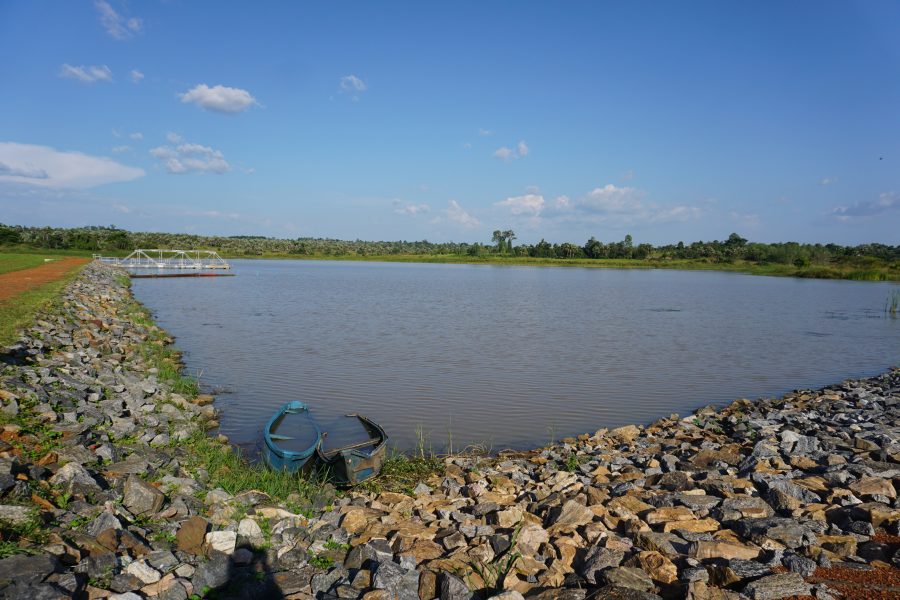
Coypright: GIZ/Robert Rwamuhokya
Conclusions and Outlook
Some of the challenges in implementing catchment stewardship that partners reflected on include data gaps which complicate precise scenario planning and projections, the difficulty of monitoring concrete progress due to the complexity of natural resources risks, the often restricted time frame for generating outcomes through partnerships, as well as the effort to generate commitment from partners. However, while the establishment and maintenance of catchment stewardship partnerships requires significant effort from partners, all highlighted the yielded returns stemming from collaborative action.
The moderator, Dr. Nathalie Richards, advisor for NatuReS in Tanzania, closed the event by thanking everyone for their continuous efforts within stewardship partnerships, as well as their attendance and will to exchange cross-country during the event. As joint conclusion, all participants agreed that by jointly taking responsibility for shared natural resources, socio-economic development can be generated while protecting the integrity of catchments.